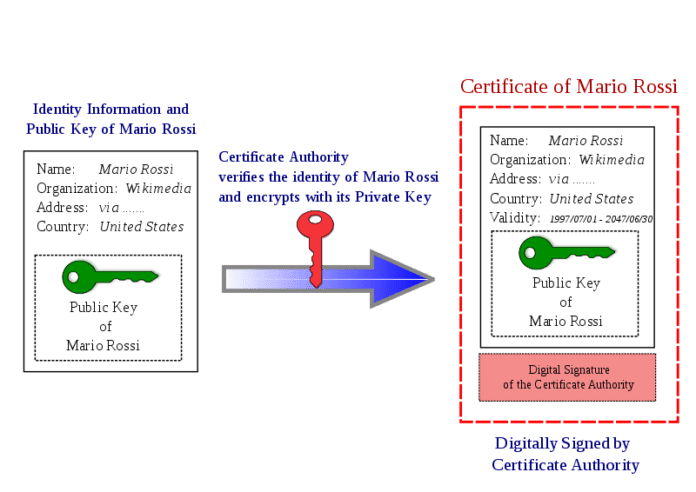More and more people use digital certificates to securely access their data, accounts, and applications, hence the online discussion on PKI based authentication. But what exactly is a digital certificate, how does it work, and why is it so important? Take a deeper dive into digital certificates; this article will explain and discuss their benefits. You’ll gain peace of mind knowing you’re taking proactive steps to safeguard against cyber threats. Let’s get started!
Definition Of A Digital Certificate – What It Is And Why It’s Used
A digital certificate is a digital document that is used to verify the identity of an individual, organization, or device. A trusted entity issues it called a Certification Authority (CA) and contains information about the certificate holder and the public key used for encryption and decryption. Digital certificates are widely used to secure online transactions by allowing for secure data exchange over the Internet. They are essential for protecting sensitive information such as financial transactions, health records, and personal information. With the increasing number of cyber threats today, using digital certificates has become even more critical in ensuring the security and privacy of online communications.
Different Types Of Digital Certificates And Their Purposes
Different types of digital certificates are available, each offering a unique purpose. The most common certificates include domain validation, organization validation, and extended validation certificates. Domain validation certificates are generally used by individuals and small organizations and encrypt email communications or websites. Organization validation certificates offer more detailed verification of the business owner’s identity and are often used by larger companies to authenticate their web domains. Lastly, an extended validation certificate, which is the most secure, requires a rigorous vetting process and can be used by government entities, banks, and financial institutions.
How A Digital Certificate Works From Authentication To Encryption
Digital certificates work like this. The certificate holder initiates the authentication process and requests a digital certificate from an authorized certification authority (CA). Once issued, the certificate contains several pieces of information, including the holder’s public key. This key encrypts messages and other data and can only be decrypted by the holder’s private key. This encryption process ensures that information exchanged between parties remains confidential and secure.Online communication would be vulnerable to malicious attacks and eavesdropping without digital certificates, which also often include a self-destruction note, ensuring additional security measures in case of unauthorized access attempts.
Benefits Of Using A Digital Certificate For Secure Communication
Using digital certificates for secure communication can provide numerous benefits, including authentication and identification verification, message integrity, and enhanced confidentiality. With digital certificates, individuals and organizations can have peace of mind knowing that their online interactions are safeguarded against unwarranted access and potential security breaches.
Common Challenges With Digital Certificates And How To Avoid Them
Digital certificates are a critical to secure online interactions but also present various challenges to users. One of the most common issues is certificate expiration, which can cause disruptions in website access and communication. Another challenge is revocation, which can occur when a certificate is no longer considered secure or invalidated. Staying on top of certificate management and regularly updating certificates as needed is crucial to avoid these issues. In addition, working with a trusted certificate authority can help ensure that certificates are valid and up-to-date.
Ways To Protect Your Digital Certificates From Unauthorized Access Or Misuse
One of the easiest ways to do this is by safeguarding your digital certificates from unauthorized access or misuse. A digital certificate is an electronic passport that authenticates your identity and authorizes access to certain information or services. However, just like a physical passport, if someone else gains access to your digital certificate, they could use it to impersonate you and access sensitive information. To prevent this from happening, use strong passwords and keep your certificates in a secure location. Regularly check for suspicious activity or access and immediately revoke any compromised certificates.
Summing It Up
In conclusion, PKI based authentication, particularly the use of digital certificates, are essential for secure communication and authentication in the digital age. While there can be a few challenges with using them, such as unauthorized access or misuse, precautions can easily be taken to protect them and ensure their security. The benefits of using a digital certificate far outweigh any associated risks, with increased safety and trustworthiness driving higher customer confidence and satisfaction levels. Plus, having various available types makes identifying and implementing the most appropriate task easy. Digital certificates truly offer a valuable solution for keeping data safe.
Help keep news FREE for our readers
Supporting your local community newspaper/online news outlet is crucial now more than ever. If you believe in independent journalism, then consider making a valuable contribution by making a one-time or monthly donation. We operate in rural areas where providing unbiased news can be challenging. Read More About Supporting The West Wales Chronicle

























